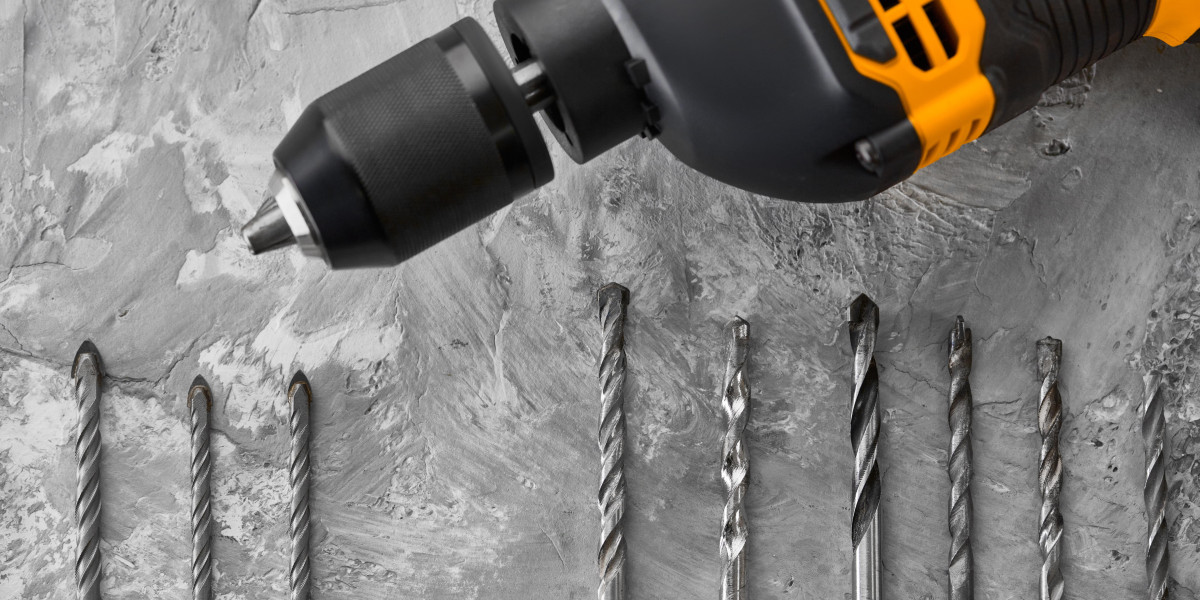Mastering Drills: The Key to Skill Development in Sports
On the planet of sports, drills function as a foundational tool for skill development, performance improvement, and technique execution. Professional athletes across different disciplines count on drills to develop their abilities, enhance coordination, and build group cohesion. This post provides an in-depth take a look at the importance of drills, various types utilized in training, and suggestions for efficient execution.

Understanding the Importance of Drills
Drills play an essential role in training programs across lots of sports. They serve to break down complex motor Elektro Bohrmaschine - Urbandreamsrealty.ushadigitalsolution.Com - skills into workable parts, allowing athletes to practice and fine-tune each aspect. Furthermore, drills promote not just specific enhancement, but likewise team effort and interaction amongst players.
Here are a couple of essential benefits of including drills in sporting routines:
- Skill Acquisition: Repetition of specific motions helps professional athletes master vital strategies.
- Performance Improvement: Drills are designed to imitate video game circumstances, boosting a professional athlete's reaction times and decision-making abilities under pressure.
- Injury Prevention: Many drills focus on appropriate techniques and conditioning, which can substantially decrease the threat of injuries.
- Self-confidence Boosting: Mastering drills can assist professional athletes feel more safe and secure in their capabilities, leading to much better efficiency in competitive circumstances.
Kinds of Drills
The term "drill" can encompass a wide range of exercises tailored to particular sports or aspects of performance. Below, Bohrmaschine Angebot we outline numerous typical kinds of drills used in various sports disciplines.
1. Essential Skills Drills
These drills concentrate on establishing the standard skills required for a sport, such as passing, shooting, or dribbling in basketball.
| Sport | Example Drill | Purpose |
|---|---|---|
| Basketball | Layup lines | Develop ending up abilities around the rim |
| Soccer | Dribbling cones | Enhance ball control and agility |
2. Conditioning Drills
Conditioning drills are created to boost a professional athlete's endurance, speed, and overall fitness levels.
| Sport | Example Drill | Function |
|---|---|---|
| Football | Up-downs | Develop strength and cardiovascular capacity |
| Track & & Field | Sprints with barriers | Boost speed and agility |
3. Group Play Drills
These drills focus on establishing teamwork, communication, and strategic plays.
| Sport | Example Drill | Function |
|---|---|---|
| Soccer | 4v4 small-sided games | Enhance tactical awareness and team effort |
| Volleyball | Rotational practice | Boost communication and fluidity throughout play |
4. Skill-Specific Drills
Tailored to enhance a particular skill or method, these drills are often sport-specific and focused.
| Sport | Example Drill | Function |
|---|---|---|
| Baseball | Batting tee practice | Improve swing mechanics and hitting accuracy |
| Swimming | Kickboard drills | Strengthen legs and enhance kick technique |
Best Practices for Implementing Drills
To take full advantage of the advantages of drills, educators and coaches should follow best practices for their execution:
1. Set Clear Objectives
Before starting any drill, it's necessary to have a clear goal. Specify what abilities or elements of performance the drill aims to enhance.
2. Ensure Variety and Progression
Repetition is crucial, but variety keeps professional athletes engaged. Include drills that gradually increase in trouble to promote continuous skill advancement.
3. Routine Feedback
Provide constructive feedback throughout the training process. This not only improves learning but likewise develops self-confidence in athletes.
4. Create a Positive Environment
A motivating atmosphere fosters motivation and allows athletes to take threats and gain from mistakes.
5. Pay Attention to Individual Needs
Each athlete has various strengths and weak points. Tailor drills to resolve specific requirements, which can help make the most of advancement.
Frequently Asked Questions (FAQs)
1. How typically should drills be practiced?
The frequency of drills will depend upon the sport, the athletes' levels, and their training schedules. Usually, practicing drills multiple times weekly yields the finest results, coupled with video game simulations.
2. Can drills prevent injuries?
Yes, drills can assist avoid injuries by emphasizing appropriate technique and motion patterns, conditioning professional athletes' bodies to handle the physical demands of their sport.
3. What is the best method to track progress?
Coaches can track development through regular evaluations, efficiency in skirmishes or video games, Elektro Bohrmaschine and maintaining records of particular metrics associated with drill efficiency.
4. What are the typical errors to avoid when carrying out drills?
Common mistakes consist of not offering customized feedback, failing to adjust the problem of drills according to players' ability levels, and not creating a helpful training environment.
Drills are the lifeline of athletic training, promoting skill advancement, team effort, and tactical execution. By understanding the kinds of drills offered and executing best practices, coaches can boost their training programs, causing improved professional athlete efficiency and confidence. The commitment to mastering drills is an effective financial investment that athletes and bohrmaschine online bestellen (Https://hw4.agri-sys.com/) teams alike will reap in both practice and competition. Whether an athlete is simply beginning or looking to fine-tune their skills further, integrating well-structured drills into their routine can cause considerable improvements with time.








